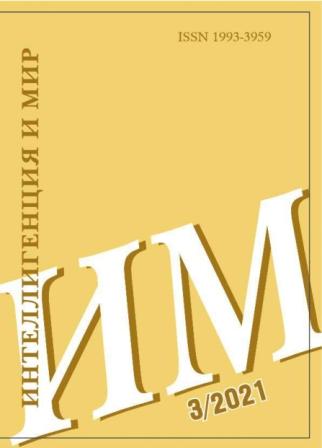Епископ в трудах Исидора Севильского: идеал и реальность. Рец. на кн.: Биркин М. Ю. Епископ в вестготской Испании
The Bishop in the Works of Isidore of Seville: Ideal and Reality. Review to: Birkin M. Yu. Bishop in Visigothic Spain
Author(s): Vladimir M. TyulenevSubject(s): History, Theology and Religion, Book-Review
Published by: Ивановский государственный университет
Keywords: Visigothic Spain; Christianity; Church; Bishop; Isidore of Seville;
Summary/Abstract: The Bishop in the Works of Isidore of Seville: Ideal and Reality. Review to: Birkin M. Yu. Bishop in Visigothic Spain. St. Petersburg: Nauka, 2020. 368 p., Intelligentsia and the world, 2021, no. 3. pp. 113—119. The review is devoted to the book “Bishop in Visigothic Spain” written by M. Yu. Birkin. The research continues a series of new works on the history of early medieval Spain published in Russia. The basis of Birkin’s research is the analysis of works of Isidore of Seville, the greatest thinker of Europe of the VII th century. The canons of some Spanish councils, which prove the influence of Isidore’s views on church lawmaking, are also investigated. The researcher proves that the bishop in Visigothic Spain became a key figure ensuring the unity of society, which was especially important in conditions of ethnic diversity and the establishment of faith’s unity in the state. As it is shown in the monograph, the bishop often was the de facto leader of the city, protected the poor, while at the same time supporting the royal power. In separate chapters, the author analyzes what qualities, according to Isidore, a bishop should have, including how high-educated and highly moral he should have been. Separately, the work analyzes the functions of a bishop in society, his role as a pastor, teacher, leader. Particular attention in the book is paid to the role of the bishop in the formation of a new historical community through the preaching (gens Gothorum). The use of materials on the history of Italy and Gaul allowed the author to see the features that distinguished the Christian community in Spain, which has kept the social and political characteristics inherent in the ancient civil community. The monograph is distinguished by serious work with Latin texts, the use of modern scientific methods, due to which the book can be considered a noticeable contribution to the study of both early medieval Christian thought and society itself.
Journal: Интеллигенция и мир
- Issue Year: 2021
- Issue No: 3
- Page Range: 113-119
- Page Count: 7
- Language: Russian

